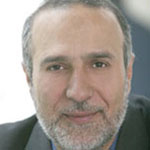Iran’s Nuclear Dossier, after the IAEA Report
By Javid Ghorban-Oghli, Iran’s former ambassador to South Africa

IAEA’s latest report on Iran’s nuclear activities was not surprising. Nuclear developments of the recent months such as failure of Vienna and Geneva talks and Ahmadinejad’s order for production of 20 percent enriched uranium created an atmosphere in which release of such a report on Iran’s nuclear program was not unexpected.
Our country’s aggressive foreign policies which were more like counterproductive propaganda also facilitated release of this report. Iran’s diplomatic discourse is not one of mutual understanding with the international community; it is the discourse of collision, opposition and deepening the gaps. We shouldn’t yield to unreasonable demands of other country, but the language we used should be adapted to a pragmatic approach.
Iran has also lacked a persuasive language in its nuclear policies. Even with our harsh rhetoric, we needed to follow a policy of persuasion vis-à-vis the International Atomic Energy Agency and key actors of the nuclear file.
Israel’s, United States’ and recently neighboring Arab countries’ lobbies have also become a problem. Barack Obama’s reconciliatory attitude towards Iran in the past year failed to achieve the desired result. Iran-EU relations are now at their nadir. For Russia and China, Iran is a bargaining chip which they could use to advance their regional and global interests. With Iran and IAEA in a chilly relation, Russia has found an excuse to justify its procrastination in construction of the Bushehr nuclear power plant.
Neighboring Arab countries have also started their project of checking Iran in the region. The language used by Arab leaders during Hillary Clinton’s visit to the Persian Gulf, was probably the harshest since the 8-year Iran-Iraq war.
The accumulative effect of these developments disturbed the pro- and anti-Iran balance in IAEA, and the outcome was latest report of UN watchdog on Iran’s nuclear activities.
Yukia Amano’s policy should be also inserted into the equation. Unlike ElBaradei and his policy of pleasing both Iran and West, Amano is in better terms with Western powers. So no surprise if his report on Iran’s nuclear program was the worst in six years according to some Iranian diplomats.
To move on a better course, at first we should admit that Iran’s nuclear dossier is not at a good point. It is no use to deny this reality. Meanwhile, Iranian leaders have always emphasized on negotiations as the only solution to the conflict. To negotiate, we must follow certain procedures. Poor handling of the nuclear case within the past few years has not only undermined Iran’s position in IAEA, UN Security Council and the global public opinion, but also has negatively affected our regional and international diplomacy. An international consensus is forming against Iran for which IAEA’s last report was a harbinger
Our country’s aggressive foreign policies which were more like counterproductive propaganda also facilitated release of this report. Iran’s diplomatic discourse is not one of mutual understanding with the international community; it is the discourse of collision, opposition and deepening the gaps. We shouldn’t yield to unreasonable demands of other country, but the language we used should be adapted to a pragmatic approach.
Iran has also lacked a persuasive language in its nuclear policies. Even with our harsh rhetoric, we needed to follow a policy of persuasion vis-à-vis the International Atomic Energy Agency and key actors of the nuclear file.
Israel’s, United States’ and recently neighboring Arab countries’ lobbies have also become a problem. Barack Obama’s reconciliatory attitude towards Iran in the past year failed to achieve the desired result. Iran-EU relations are now at their nadir. For Russia and China, Iran is a bargaining chip which they could use to advance their regional and global interests. With Iran and IAEA in a chilly relation, Russia has found an excuse to justify its procrastination in construction of the Bushehr nuclear power plant.
Neighboring Arab countries have also started their project of checking Iran in the region. The language used by Arab leaders during Hillary Clinton’s visit to the Persian Gulf, was probably the harshest since the 8-year Iran-Iraq war.
The accumulative effect of these developments disturbed the pro- and anti-Iran balance in IAEA, and the outcome was latest report of UN watchdog on Iran’s nuclear activities.
Yukia Amano’s policy should be also inserted into the equation. Unlike ElBaradei and his policy of pleasing both Iran and West, Amano is in better terms with Western powers. So no surprise if his report on Iran’s nuclear program was the worst in six years according to some Iranian diplomats.
To move on a better course, at first we should admit that Iran’s nuclear dossier is not at a good point. It is no use to deny this reality. Meanwhile, Iranian leaders have always emphasized on negotiations as the only solution to the conflict. To negotiate, we must follow certain procedures. Poor handling of the nuclear case within the past few years has not only undermined Iran’s position in IAEA, UN Security Council and the global public opinion, but also has negatively affected our regional and international diplomacy. An international consensus is forming against Iran for which IAEA’s last report was a harbinger

